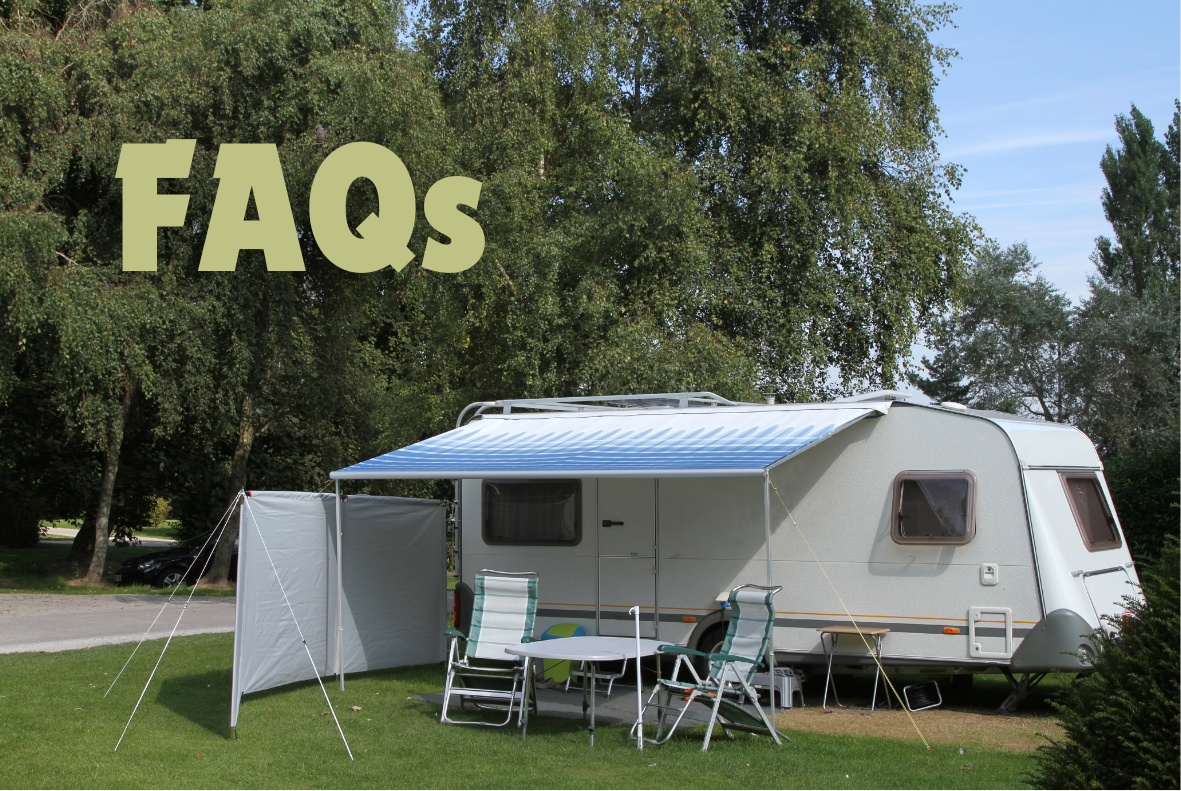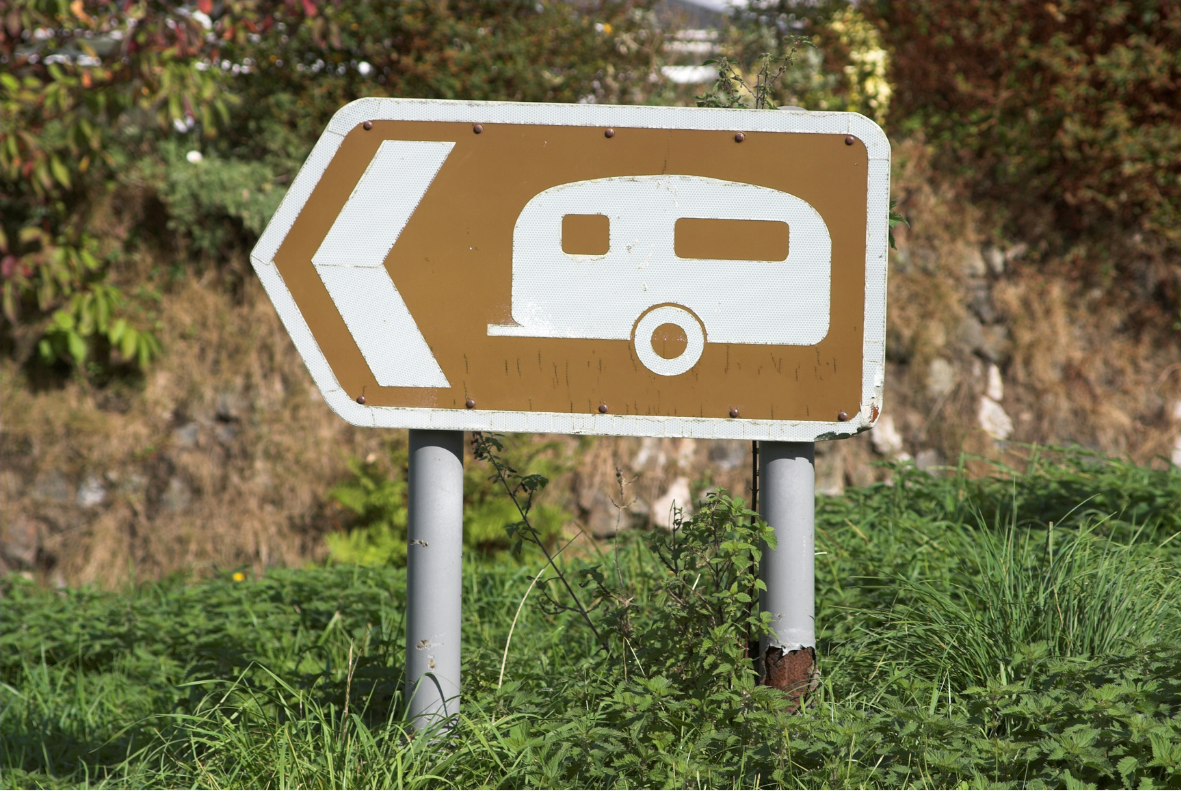Compare Caravan Insurance
- Save on your caravan insurance
- Compare a wide range of insurers at once
- 100% independent comparison service
- A quick and easy quote process

UK Caravan Laws & Regulations
Do you have to register a caravan like you would a car?
No - caravans aren’t registered with the DVLA, and don’t come with a logbook or V5C. If you want to, you can register ownership of your caravan with the Caravan Registration and information Scheme (CRiS). It’s not a legal requirement, but it can be useful if your caravan is stolen.
Do caravans need to be taxed or have an MOT?
You’ll only need to pay road tax on your touring caravan if the Maximum Authorised Mass (MAM) is more than 3,500kg. If it is, you’ll need to research the charges that apply.
Caravans also don’t need to have an MOT in order to be road-legal. However, it’s generally expected that the owner of a caravan takes good care of it, making sure it’s roadworthy. This includes checking the tread depth of the tyres, the operation of brakes and indicators, and that the gas and electricity of your caravan are working properly.
Can I tow a caravan with my normal driving licence?
If you got your driving licence before 1st January 1997, you can tow a car and caravan with a combined weight of up to 8,250kg.
If you got your licence on or after 1st January 1997, you can tow a car and caravan with a combined weight of up to 3,500kg without needing a special licence. If the combined weight is over 3,500kg, you’ll need to pass an additional driving test to get a B+E licence.
To find out the maximum authorised mass (MAM) of your vehicle or caravan, check the owner’s manual or the VIN plate. For caravans, the MAM is usually on a plate on the tow bar or chassis.
What’s the speed limit when I’m towing the caravan?
You’ll need to be extra cautious when you’re towing a caravan due to the additional weight and size - this can lead to handling issues and make it challenging to drive.
In built-up or residential areas, you should follow the usual speed limits (usually 20/30mph). However, when it comes to single carriageways you should not exceed 50mph, and on dual carriageways or motorways, you should not exceed 60mph. On a motorway with three or more lanes, you also cannot use the outside lane if you’re towing a caravan.
Can passengers ride in a caravan when it's being towed?
No, it is illegal and extremely dangerous to do so. It’s legal to tow a caravan with a dog or other pet inside, but it isn’t recommended - as well as being unsafe, they can become too hot, uncomfortable, and overwhelmed. In the event of an accident, there is also very little protection compared to driving with their family in the car.
Caravan equipment & penalty fines
It's really important to stay safe and legal when you’re towing a caravan. Make sure to check everything is working properly before each trip - if you don’t, you risk a fine of up to £2,500, a driving ban, and 3 points on your licence.
| Breakaway Cable | A breakaway cable attaches to your car's tow bar and applies the caravan's brakes if it becomes unhitched. Caravans built after 1st October 1982 must have one of these, and any replacement cables must meet original standards. |
| Mirrors | You need towing mirrors to see down the sides of your caravan and at least 20 metres behind you. Not having the correct mirrors can result in a fine of up to £1,000 and 3 penalty points. |
| Lights and Reflectors | Your caravan must have two red triangular reflectors at the back, along with sidelights, brake lights, and indicator lights. Caravans built after 30th September 1990 also need front reflectors and position lights. |
| Number Plate | Your caravan must display a number plate that matches your towing car, and it should be illuminated at night. |
| Brake System | It’s a legal requirement to have a fitted braking system if your caravan weighs over 750kg when it’s loaded. |
|
Tow Bar |
You must use a tow bar which is ‘type-approved’ - it’ll be labelled with an approval number and the vehicle(s) it’s approved for. This means that it meets EU regulations and is suitable for your car. However if your car was first used before 1st August 1998, your tow bar does not need to be type-approved. |
Parking & storage
It's technically legal to park your caravan on a public road since the Highway Code doesn't specifically mention it. However, make sure you're not causing an obstruction, park in the direction of traffic, and keep your caravan lit at night. Be aware that your local council might have restrictions, and they could ask you to move it, especially if neighbours complain. Also, check your caravan insurance policy as it might not cover the caravan while it's parked on the road and unhitched.
You don't need planning permission to store your caravan in a garden or on your driveway, but if you're thinking of using farmland or another specific location, you might need planning permission. Keeping your caravan at home is generally straightforward, but if you plan to live in it full-time, this might mean a different set of rules. When in doubt, check with your local authority.
Other caravan insurance articles which you may be interested in...
 Caravan Insurance: FAQs -
Answers to your frequently asked questions regarding touring or static caravan insurance.
Caravan Insurance: FAQs -
Answers to your frequently asked questions regarding touring or static caravan insurance.
 Caravan Touring in Europe -
A quick guide to making sure you've got everything you need before taking your caravan to Europe.
Caravan Touring in Europe -
A quick guide to making sure you've got everything you need before taking your caravan to Europe.

